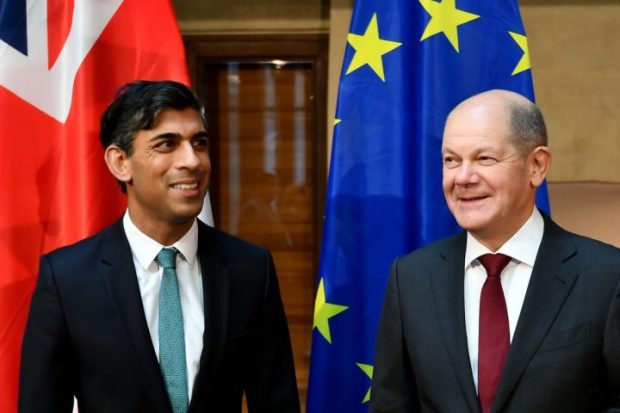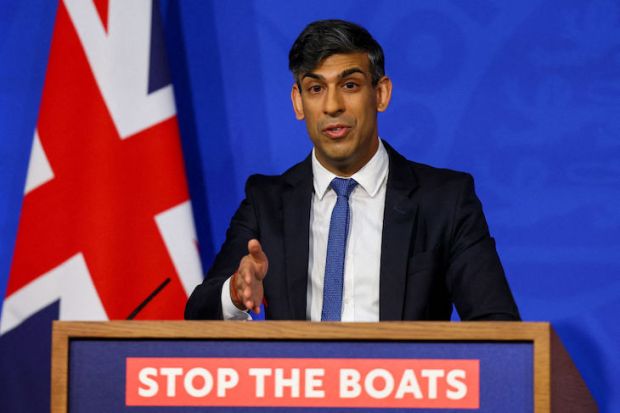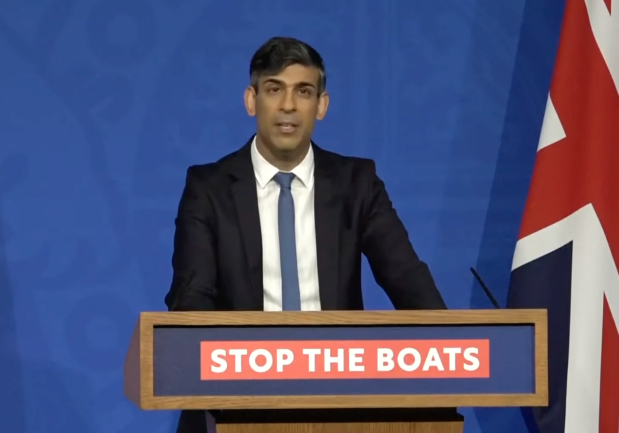Queen’s Speech day is one of the set-pieces when the government gets to decide that morning’s headlines. Barring disaster, the stuff you brief to the media the day before the speech will be what leads that morning’s bulletins, and has the best chance of being the thing that punters remember about the speech – if they remember anything at all, since, of course, most people don’t pay any attention to political news.
Anyway, the central fact here is that No. 10 chose to lead with skills today, a package of promises about how things will get better for the people who do not do A-levels then got to university for three years to get a degree. There’s a name for those people: the majority.
I make this point a lot, because it still needs to be pointed out that most people in the UK don’t or didn’t go to university and get a degree. Yet many of the people who lead our national conversation often proceed from the (unconscious?) assumption that being a graduate is the norm, and anyone who doesn’t have a degree is somehow unusual.
Given the bare facts – the majority of the UK population don’t have degrees – it should be utterly mundane to see the government of the day talking about the educational provision it makes for that majority. Yet it is novel, and welcome, to see that government – any government – making skills, adult education and even further education its number one priority for today’s news-cycle and this parliamentary session.
That decision, of course, reflects the importance of non-uni routes to the people and places that are now the focus of Conservative politics: ‘red wall’ seats, in the widest sense of that term. (See Rachel Wolf for more on the importance of training and apprenticeships et al for the voters who decide who holds those seats. Or see my SMF colleagues on Further Education (FE) and Hartlepool).
In that sense, it should be unsurprising that the Queen’s Speech is leading on skills and training; it’s entirely consistent with the political agenda of the government. Yet such is the deep-seated cultural aversion to ‘the other bit’ of the education system in Westminster and Whitehall, it’s taken the Boris Johnson government nearly two years to reach this point. Two years, and sustained effort from people including Gavin Williamson, an education secretary who appeared to grasp the politics of Further Education rather more quickly than some of his colleagues.
Williamson hasn’t had much positive press in the last year or so, but the Queen’s Speech should cause a modest rise in his share price on the Westminster markets. In the interests of disclosure – and self-promotion – I should note that today’s announcements are the culmination of an agenda that Williamson kicked off in a (slightly surreal) lockdown speech to my think-tank last summer. (Professor Alison Wolf, the cross-bench peer who has driven this work from the No. 10 Policy Unit, following a lifetime of influential work making the case for lifelong learning provision, also deserves credit).
So where next for the politics of education for the ‘other 50 per cent’? I think today’s promises raise some challenges for both the big parties.
For Labour, it’s a reminder – barely needed – that the Conservatives really are serious about marching deeper and deeper in traditional Labour territory. Speaking as a non-partisan, I hope that the outcome of today is that Labour in due course seek to offer even bigger, better plans of their own on FE and adult education. This policy area – and the people it affects – deserve better from politics in general, so I hope politicians start fighting over who can do best for them.
And what about the Conservatives? Are they really willing to follow through on the logic and promises of today’s announcements? For all that the Conservatives are increasingly reliant on non-graduate votes, bits of the party are often much more interested in the people who do go on to HE. If you have a safe Tory seat in the south-east, most of your voters have children and grandchildren who went or will go to university; the people who use the local FE college might not be such reliable supporters.
So will the Conservative party collectively embrace the new drive to offer better educational opportunities to those people? The question is really about money: how much cold hard cash will the next Comprehensive Spending Review allocate to Further Education, skills and adult education?
There are years of cuts to make up for – cuts made by Conservative ministers who saw no political cost in taking cash away from the education of ‘other people’ who use FE and the rest. Perhaps the biggest question here is for Rishi Sunak. The Chancellor will not be short of people quietly telling him to be wary of opening the spending taps on skills.
The Treasury never learns but never forgets. It has seen skills promises come and go. It is also highly suspicious of No. 10 rhetoric about helping people to ‘live local and prosper’. The Treasury believes in agglomeration effects, which mean getting as many graduates as possible to cluster in big cities to create wealth that cascades out to the towns around them.
Will this time be different? Will the Treasury cough up the cash to back up today’s promises to the people who don’t go to university? I don’t know. But I do know that in politics, expectations matter a lot. The Prime Minister of the day, fresh from a series of election victories in the red wall, has today made some big and prominent promises to the voters who live there about a better system of education and training. Having written such a big cheque, he really should make sure it doesn’t bounce.
Got something to add? Join the discussion and comment below.
Get 10 issues for just $10
Subscribe to The Spectator Australia today for the next 10 magazine issues, plus full online access, for just $10.



















Comments
Don't miss out
Join the conversation with other Spectator Australia readers. Subscribe to leave a comment.
SUBSCRIBEAlready a subscriber? Log in